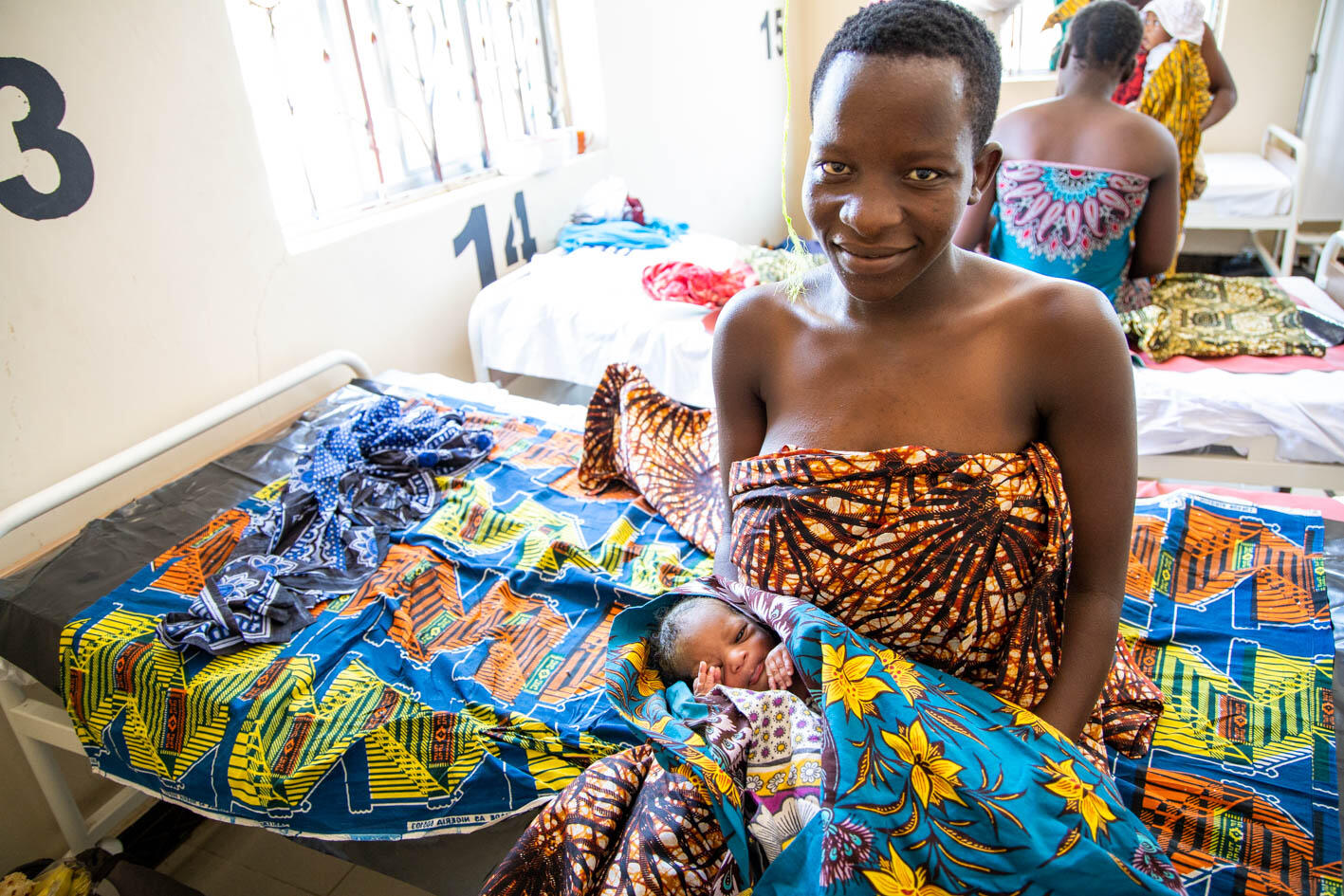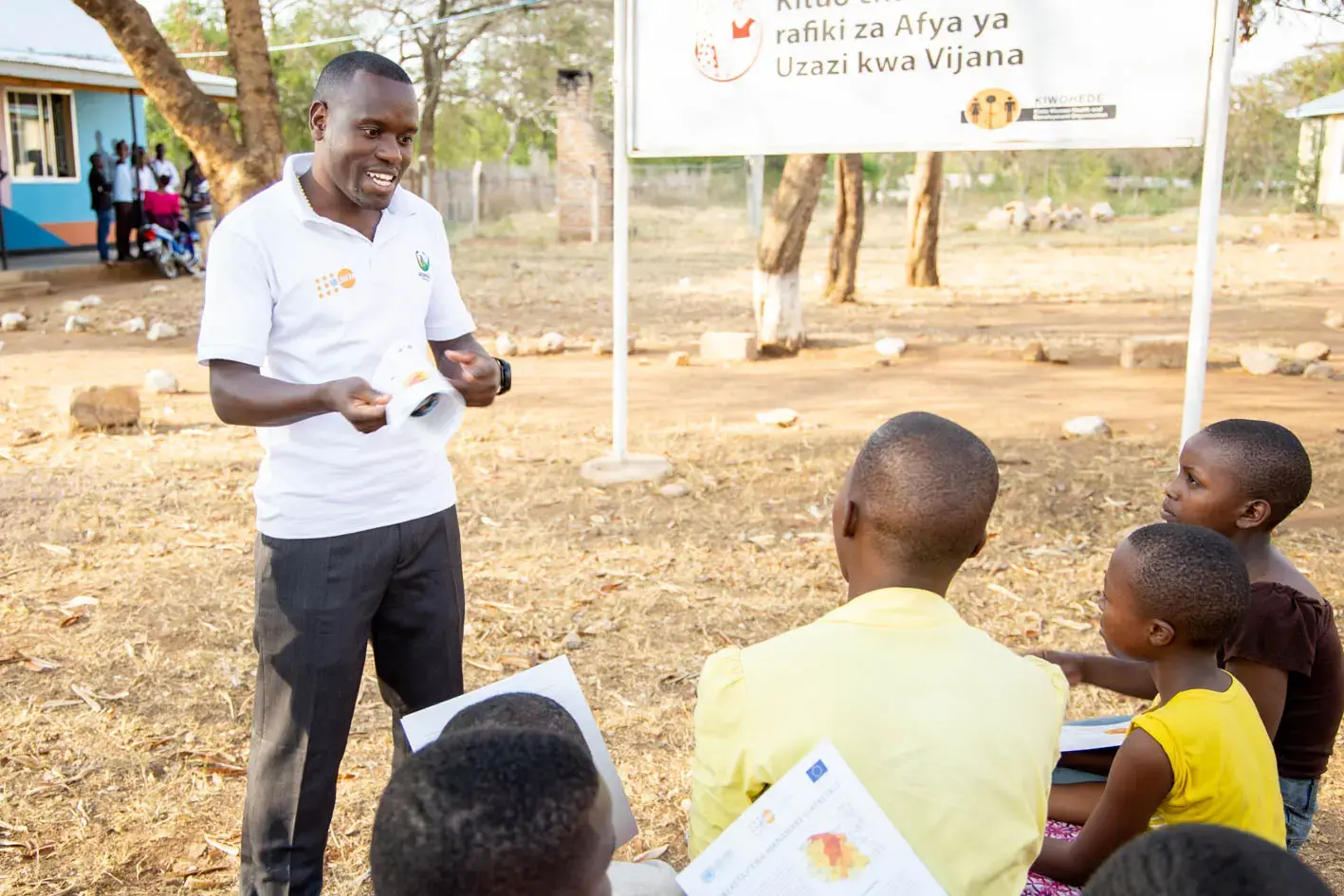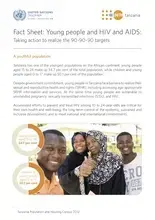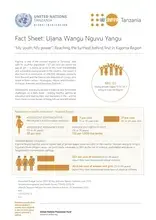Simiyu, Tanzania – Angelina has been a midwife for 30 years, and is now based at Bariadi District Hospital, a facility recently renovated and equipped by UNFPA to provide quality maternal and child health care – including emergency obstetric and newborn care.
Angelina says that even after three decades she still feels an enormous sense of pride and joy when she sees a smiling mother holding a healthy, bouncing baby for the first time…and relief. Angelina’s mother did not survive childbirth.
With the first case of the new coronavirus disease (COVID-19) confirmed in Tanzania in early March, Angelina is worried. There have not yet been any reported cases in Bariadi District, but she says that the community is ‘alert’ and she is concerned about how she will continue to protect mothers and their newborns if there is an influx of COVID-19 patients and she is reassigned to care for them.
Neema, a colleague of Angelina’s at Bariadi District Hospital, expresses similar sentiments. She has been a midwife for seven years and is used to challenges, but the times of COVID-19 are unprecedented: “Watching the news, I think what will happen if people are not allowed to leave their homes? How will we get pregnant women to the health facility for antenatal, delivery and postnatal care”? she asks. And, in spite of Angelina and Neema’s resilience and courage to continue to provide life-saving services for pregnant women and newborns, both women are concerned about their own and their colleagues personal safety.
UNFPA is working with the Ministry of Health to put measures in place to ensure that quality and safe maternal health and other sexual and reproductive health services, including voluntary family planning, are prioritized as part of national COVID-19 response efforts and that frontline workers, including midwives like Angelina and Neema, are protected.
UNFPA has projected national reproductive commodity needs, including modern contraceptives and life-saving maternal health medicines, to ensure uninterrupted supplies during the COVID-19 outbreak; and personal protective equipment (PPE) and essential supplies for infection prevention have been procured for regional, district and health centre level facilities in Simiyu, Kigoma and Dodoma Regions and Dar es Salaam and Zanzibar.
Training and resources for health workers in targeted facilities in Simiyu, Kigoma, Dodoma and Dar es Salaam, Tanzania mainland, and Ugunja and Pemba, Zanzibar, are all scheduled. Additional nurse-midwives and clinical officers are also being recruited for the anticipated surge in demand for healthcare. And knowing that this is an extremely challenging and stressful time for frontline health workers, UNFPA is working to set up dedicated counselling services for caregivers both online and within the national toll free helpline in both the Tanzania mainland and Zanzibar.
Tanzania’s midwives are central to the delivery of quality sexual and reproductive health services – and advancing gender equality efforts. Every day they uphold women’s right to quality and midwife-led care during the childbirth continuum, and, through the provision of voluntary family planning information and services, their right to make an informed choice about their family planning method – these rights cannot be suspended during the COVID-19 pandemic.
During these challenging times UNFPA remains as committed as ever to its partners – including midwives – and the people it serves to ensure that progress made towards global goals and UNFPA’s three zeros – zero unmet need for family planning, zero preventable maternal deaths, and zero gender-based violence and harmful practices by 2030 – does not stall or even worse reverse. Our priority is to ensure that women and girls rights remain at the forefront and centre of the COVID-19 national response in Tanzania so that nobody is left out or left behind.





